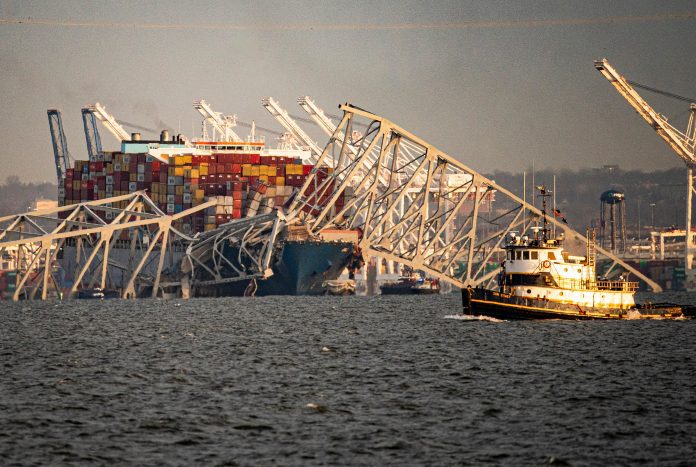Automakers are taking steps to offset delays created by the tragic collapse of the Francis Scott Key Bridge over Baltimore port, a key shipping destination for the automotive industry.
On Tuesday, the Francis Scott Key Bridge fell into the water after a cargo ship struck one of its supports. According to authorities, eight individuals were on the 1.6-mile bridge when it collapsed, two of whom were later rescued from the Baltimore port and taken to the hospital. CNN reported that the vessel crew alerted officials before the accident, allowing the bridge to be cleared before the crash.
Detroit-three automakers’ views on how the incident would impact their supply chains varied heavily over the course of Tuesday and Wednesday. In a statement, General Motors said it anticipated little delay and would re-direct incoming shipments to other destinations. Ford was less assured, with CFO John Lawler telling Bloomberg News the incident at Baltimore port was “going to have an impact” and would “probably lengthen the supply chain a bit.” Stellantis said it was analyzing the situation but has yet to offer an estimate on how severely its delivery times would be affected.
Despite the industry’s conflicting responses, federal officials seemed more alarmed. Transportation Secretary Pete Buttigieg remarked “There is no question” that the accident will have a “major and protracted impact to supply chains.” The Port of Baltimore is a primary channel for vehicle and vehicle part shipments, which account for 42% of its imports. Roughly 750,000 cars passed beneath the Francis Scott Bridge in 2023.



